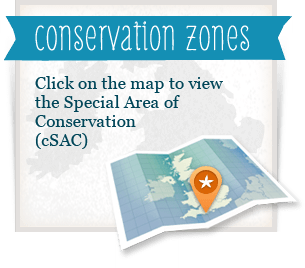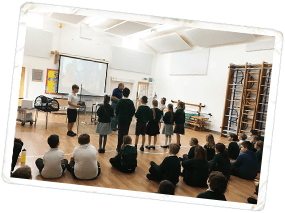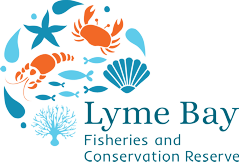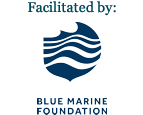
Education Resources
 Fish Nutrition & Food Miles
Fish Nutrition & Food Miles
Key Stage: KS2, KS3
Key Outcomes: To gain a greater understanding of the nutritional benefits of eating fish. To understand that how far food travels is called its food miles, and how to calculate them. To understand what carbon footprint is.
Includes:
- Lesson plan
- PowerPoint presentation
- Activity resources
Key Outcomes: A decision-making activity based on the Lyme Bay Reserve ecosystem. Understand what types of species live in Lyme Bay, and how you value them. Role play activity to rank species in order of importance. Students will be asked to interpret the impact of their decisions. Discussion around food webs, and life cycles, and the role of reefs in supporting healthy marine ecosystems.
Includes:
- Lesson plan
- PowerPoint presentation
- Activity resources
Additional rescources are required for this module to have its full impact. Please see the lesson plan for details.
Key Outcomes: To recognise some of the common items that make up marine litter and the scale at which they are found. To understand that something can be done to reduce the problem. This module is very topical and can be pitched at a variety of year groups. It aims to emphasise how much of a problem marine litter is, what kinds of items are commonly found on the beaches around Lyme Bay, and how the problem can be reduced on an individual and large scale.
Includes:
- Lesson plan
- PowerPoint presentation
- Activity resources
Additional resources are required for this module to have its full impact. Please see the lesson plan for details.
Key Outcomes: To understand the importance of Lyme Bay as a fishery. To appreciate how fragile the habitat is, and why it needs to be protected. This module gives an insight into the Lyme Bay habitat and why it is so important. It outlines ways in which the habitat can be damaged and how this damage has been limited since the new reserve management system has been in place.
Includes:
- Lesson plan
- PowerPoint presentation
- Fact cards
Additional materials are required to allow this module to have full effect.
See lesson plan for more details.
Key Outcomes: An all-class involvement activity, to understand some of the key groups involved in maintaining the success of the Lyme Bay Reserve. To demonstrate that discussion and pooling of resources leads to more favourable outcomes for all.
Includes:
- Lesson plan
- Extension activity resources
Key Outcomes: To understand the different types of sustainable fishing methods used in Lyme Bay Reserve, the types of commercial species caught, and the wide range of flora and fauna found in Lyme Bay, which is protected by the fishermen of Lyme Bay Reserve.




















